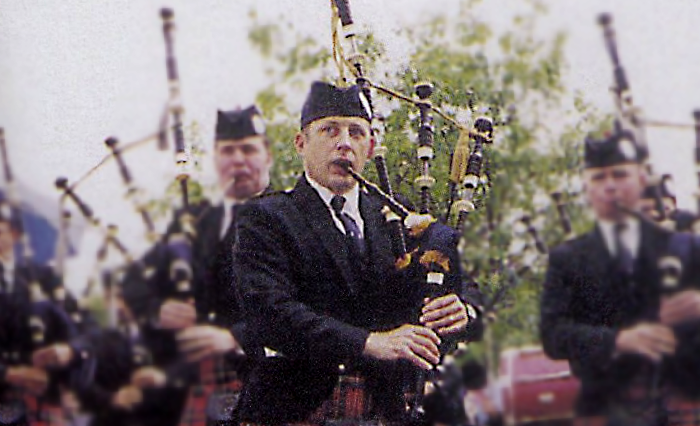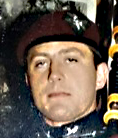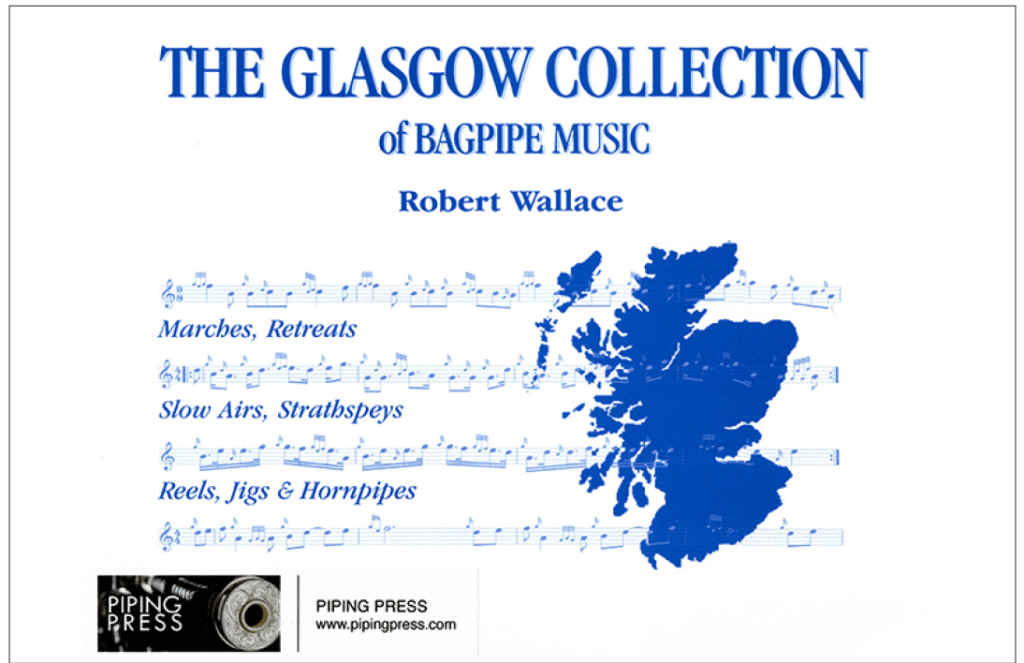
My name is Ian Plunkett. I am 63 and competed in Grade 1 as a piper from the age of 16. I played in Red Hackle in its various incarnations, Glasgow Skye, was Pipe Major of Strathclyde Police from 1997 to 2002, and latterly played with Scottish Power. I am qualified to Level 6 with the RSPBA and I am a recognised instructor and assessor within the organisation.

By Ian Plunkett
I write this with regard to my disillusionment with the system for the training of Association judges after I was accepted for a course held in March this year. I will set out the reasons for my disillusionment below.
Who would judge? Anyone listening to any live or recorded performance of a band is entitled to express an opinion and list prizewinners in a particular order.
At competitions I have seen people doing this from first to last in the various grades. This public involvement enhances the great tapestry of pipe bands and we are the better for it. All pipe band followers are judges and rightly so. It is healthy to have different attitudes towards tone, musical expression, and construction of MSRs or Medleys.
But at the end of the day these opinions are personal and do not influence the actual outcome of competitions; nor should they. This must be left to the qualified experts, the RSPBA judges. Everyone accepts this.
Now, who should present themselves to be such a judge? I agree there needs to be a recognised background in pipe band musicianship: playing at the highest level, but also taking into account any experience as a pipe major or pipe sergeant. Prize-winning at the highest level also comes into it.
In addition to this we must include integrity. Judges need to put petty grievances and favouritism to one side when stacking up performances. This must be done without prejudice, to the best of the judge’s knowledge, and without outside influence. I think most people would agree with this.
My argument is not with any of that but with the present judges’ training set up. It mitigates against the introduction of fresh faces to the line-up. Look at my own experience. I spent three years gaining the recognised qualifications for consideration to be a judge.
I had been informed that my previous experience and positions held comfortably put me in line to progress. I was particularly positive on knowing that in the past individuals had been fast tracked to the Adjudicator’s Panel and the process was fairly quick. I later learned the process would be longer – the ‘fast track’ route had been removed. Despite this I believed it would not be unreasonably long before I got my judge’s ticket.
You will understand my disbelief when, having attended and completed the online training weekend in March this year, I was informed that it would be followed by 12 monitored runs over a period of two seasons followed by a further two-year probationary period.
I fully understand there needs to be a monitoring of a new judge regarding what he writes and his placings being open to scrutiny. But I find it staggering that this possibly takes two seasons then a further two years’ probation, particularly in my case after having been told my experience and positions had qualified me to the highest standard.
I feel this gives no encouragement to persons wishing to come onto the judging panel; it is a barrier. I find it particularly upsetting that this seems to be a relatively new set up. Where did the 12 monitored runs and further probation come from, and what research was carried out leading to the conclusion that they were necessary?
There could be a perception that this system is making a closed environment of individuals, with some as qualified as myself only getting over the finish line in spite of the set up rather than because of it.
The argument could be made these rules are designed to improve the standard of judging and I take the point. But the question has to be asked: is this the answer? I don’t believe so.


















Iain McLeod never judged due to the RSPBA asking him to quantify his experience (5 worlds). Many other great Grade One judges have stepped away due to RSPBA politics, after the last few years of bad publicity you would hope that the RSPBA would look to change for the better.
I would strongly suggest that people read the Adjudicators and music board report from the RSPBA. This sets out the ACTUAL process as opposed to what is presented here. Congratulations to the 11 top level pipers and drummers who completed the course starting in March and are now qualified Adjudicators.
PM Terry Tully should be judging at the Worlds
every year.
Very few Pipe Majors have lifted the
Grade 1 trophy in the last 20 years.
What more qualification do you need.
As the great PM Tim Keogh of Fintan Lalor said on this subject, said who’s going to judge me.
Ian, I agree completely.
I wouldn’t worry about it Ian… it seems some of the most notable, experienced judges can’t get the result right. Probably some of which will be your mentors. I suggest just enjoying the experience. Having said that, the fact you have spoken out will mean you won’t see the grass.
Ensemble and drumming judges are a law unto themselves. There should be two of each and the mark halved. Check out the different grades at the Worlds to see the disparities. Either they are incapable, or bias for some reason only known to themselves.
I would post my name, but then that would give these judges the ammunition to be biased against me!
If I comphrehend Ian’s article correctly, it is putting forward the case that arguably the greatest Pipe Major in the present day, who has just announced his retirement, Richard Parke, would have to wait years before he can judge bands. This appears to be an inflexible system, not fit for purpose.
I think Richard Parkes is already qualified to judge and has been for many years.
That setup would put any hopeful of from judging, it’s jobs for a closed shop for the boys.
No hope for the future of a high level of judging. You need fresh blood to keep coming in to keep up Standers and move forward.
☹️☹️☹️
I don’t agree this concept that someone must have to have been playing at the ‘highest level’.. That suggests that players or PM’s/LD’s who remain loyal to a smaller hometown band and enjoy relative success and progress up the Grades also, are somehow not qualified enough in the artform to be able to form an educated opinion on any Pipe Band performance. Total codswallop
Couldn’t agree more, well done.
There are loads of people out there who are well capable of judging a pipe band, who have never got near Grade 1. People who have taught for decades, picked reeds, have set up chanters, set up bands, put together medleys, have been innovative and inspirational, have a feel for tone, fingerwork, expression and musicality, all done with lower grade bands. People who don’t have resources, finance or huge numbers of players poached from other bands, but who have contributed hugely to the overall pipe band landscape. People with honesty, integrity and passion for the pipe band scene.
Do you have any solid evidence to support your assertions?
Absolute nonsense. If you haven’t played at the top level you have no idea what it takes to get there, Maintain the standard and stay there year on year. I get people teach can set up pipes. However it is dramatically different setting 10 players in grade 3 than 22 in grade 1. If you haven’t played in it you can’t tell the small differences in what makes 1st to 4 th. End of.
Your arrogance, your sense of entitlement, your utter blind stupidity and ignorance towards the talents and expertise of a wide range of people who have spent decades honing their craft, shows everything that is wrong in the pipe band world.
I know and have experienced fantastic grade 1 players who couldn’t set the table, never mind set up a band. Great footballers do not necessarily make great football managers. Great pipers do not necessarily make great judges.
4 years to become a fully qualified judge without formal certification is ridiculous when this is equal to the time taken to obtain a degree in Scotland.
A year of probation combined with monitoring whilst judging 2 events at each of the grade 1 competitions should be sufficient.
The system clearly needs a shake up due to the all too frequent judging errors occuring at the moment